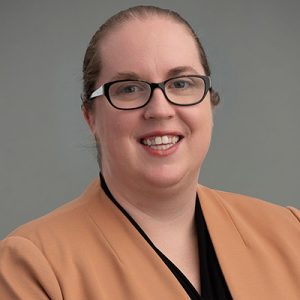
Over 12,000 patients in the state of Wisconsin are impacted by kidney failure. Receiving a new kidney from an organ donor can cure kidney failure, but there is nowhere near enough donor kidneys to meet the needs of kidney failure patients. In addition, 1 out of every 5 kidneys that are recovered from deceased donors with the intent to be transplanted are currently discarded because they do not meet strict criteria for organ quality. Division of Transplantation Assistant Professor Jennifer Philip, MD believes some of these kidneys could actually be used if we improved the way we assess kidney function after the organ is recovered from a donor patient. This is the focus of her two-year, $150,000 New Investigator Award from the Wisconsin Partnership Program.
“Hypothermic machine perfusion, or HMP, is a technique we use to preserve organs until they can be transplanted into a recipient patient. It involves maintaining the organ at a low temperature and circulating preservation fluid through the blood vessels,” explained Philip. “The current methods that we have for evaluating how a kidney is functioning during HMP are less than ideal, which leads to discard of potentially useable organs. My goal is to develop better parameters and imaging methods that we can use during HMP to assess whether a donated kidney is viable so we can maximize the number of donated kidneys that can be transplanted into patients who urgently need them.”
Working with Dr. Alejandro Roldán-Alzate in the UW Departments of Mechanical Engineering and Radiology and former UW Division of Transplantation Associate Professor Dr. Jacqueline Garonzik Wang, who recently re-located to the University of Alabama-Birmingham, Philip will be developing novel assessment tools for evaluating deceased donor kidneys during HMP. The tools will focus on how the kidney’s blood vessels are functioning while undergoing HMP and the use of non-invasive advanced MRI and ultrasound techniques to evaluate this functioning. Once developed, she plans to conduct future research that would validate these tools for use in clinical practice.
“Addressing the critical knowledge gaps in how we evaluate kidneys from deceased donors will have a lifesaving impact on the growing group of Wisconsinites with kidney failure, especially among patients from groups that have been historically marginalized, as these patients are disproportionally impacted by kidney failure,” said Philip. “I’m incredibly grateful to the Wisconsin Partnership Program for the funding that will make this possible, and for the support of my collaborators, Drs. Roldán-Alzate and Garonzik Wang.”